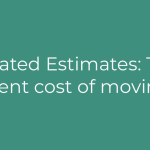The Expat's Guide to Navigating Different Tax Systems
Oh, the joy of traversing the globe and experiencing life beyond borders! But with the thrill of new sights and cultures comes the complexity of dealing with different tax systems. No need to panic, intrepid traveller. Here’s your trusty guide to navigating the often confusing waters of international taxation.
Always Start with Research
Before diving headlong into a foreign country’s tax laws, start with a general overview. Understand the tax year, types of taxes (income, consumption, property, etc.), and if there’s any tax treaty between your home country and the country you’re residing in.
Residency and Source-based Taxation
Most countries have two primary methods for taxing their citizens and residents:
- Residency-based taxation
means you’re taxed on your worldwide income regardless of where it was earned.
- Source-based taxation
You’re only taxed on your income within that country.
Knowing which system applies is vital. For example, the US uses a residency-based system, meaning US citizens and green card holders must file US taxes even if they live abroad (though exclusions and credits are available).
Double Taxation Agreements (DTAs)
Many countries have DTAs to ensure citizens aren’t taxed twice on the same income. These treaties often provide tax breaks or credits for the taxes paid to another country. Understanding its provisions can save you money if you’re from a country with a DTA with your current residence country.
Foreign Earned Income Exclusion & Tax Credits
For U.S. expats, there’s the Foreign Earned Income Exclusion (FEIE) which allows you to exclude a certain amount of your foreign-earned income from U.S. tax. There are also Foreign Tax Credits which provide a dollar-for-dollar credit for foreign taxes paid.
Understand VAT and GST
Consumption taxes, often in the form of Value Added Tax (VAT) or Goods and Services Tax (GST), are prevalent in many countries. As an expat, knowing the rates and whether any refunds are available for tourists or temporary residents is essential.
Reporting Foreign Bank and Financial Accounts
In some countries, there’s a requirement to report foreign bank and financial accounts if they exceed a certain threshold. For example, the U.S. has the FBAR (Foreign Bank Account Report), which requires citizens to report foreign financial accounts with more than $10,000.
Seek Expert Advice
Tax laws can be intricate and confusing. When in doubt, it’s worth seeking a tax advisor familiar with both your home country’s tax system and the one you’re living in.
Keep Impeccable Records
When dealing with multiple tax systems, accurate and comprehensive record-keeping can save you from future headaches. Ensure you have documentation for all income sources, tax payments, and any foreign tax credits claimed.
Staying Updated
Tax laws aren’t set in stone; they can change based on new governments, policies, or economic conditions. As an expat, staying updated with any changes that may affect your tax obligations is essential.
Wrapping Up
Life as an expat can be thrilling, full of adventures and opportunities to immerse oneself in diverse cultures. But with the thrill comes responsibility. By understanding the tax implications of your expat journey, you can focus on what truly matters—enjoying the experience and making the most of your time abroad. Safe travels and smart tax navigating!
For more information, Email our team at [email protected]
Login and start your journey at www.relo-global.com/en









